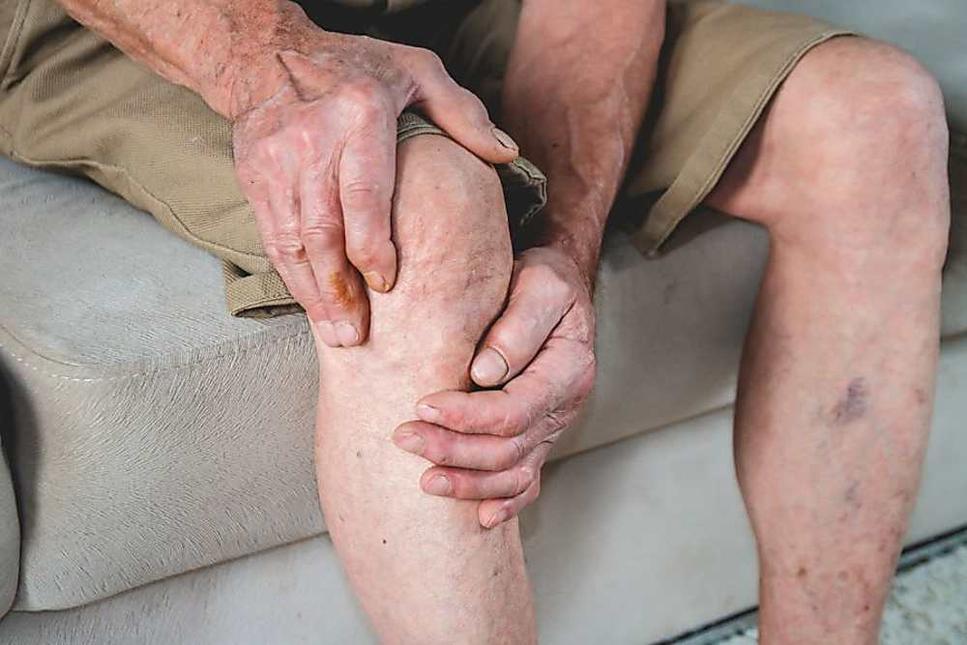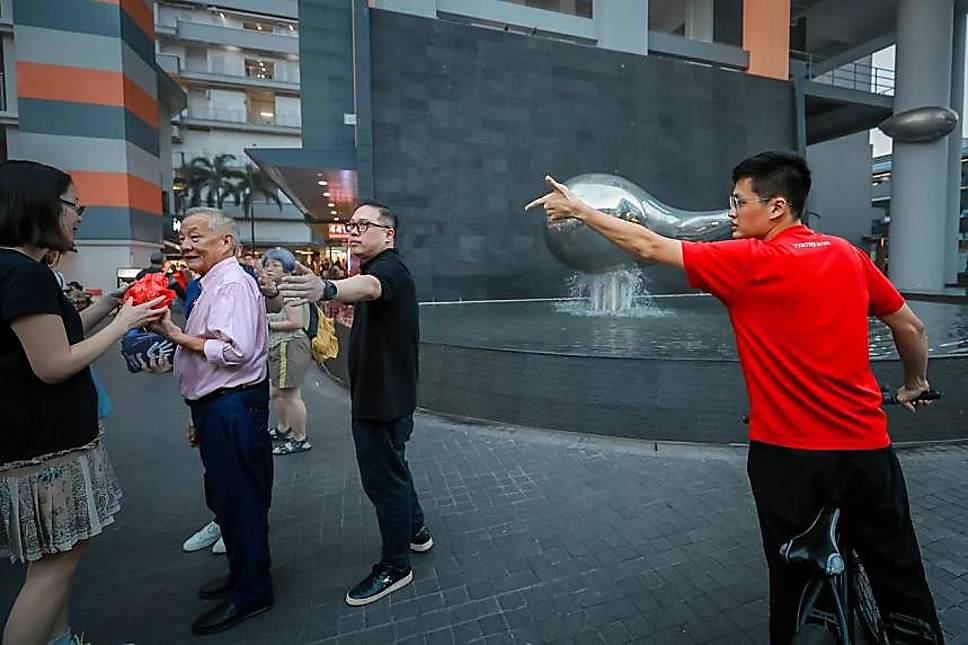Beyond ‘difficult and dirty’ – what community eldercare workers know that we don’t
Singapore will need more workers to care for its elderly. It is not an easy job but it can be truly meaningful and fulfilling.

We’ve all heard the statistic – that one in four Singaporeans will be aged 65 and above by 2030. This is partly a result of lowered fertility and increased life expectancy at 84.9 years on average (among the highest globally). On the other hand, a senior spends about 10 years in declining health, plagued by chronic diseases such as high blood pressure, high cholesterol and diabetes. As the risks and rate of dementia rise, a longer duration of patient care is needed. Home and community-based aged care plays a major role in the long-term care support system.
Community-based elder daycare centres host older adults for a duration of six to nine hours a day, under the supervision of trained direct care workers. These are non-healthcare certified caregivers who tend to the daily basic needs of the elderly – such as interaction, personal care, exercise and meals. Unlike residents of nursing homes, the senior clients at these centres do not have acute care needs, though some may exhibit varying degrees of mobility and dementia conditions.
But people have notions about eldercare work that stop them from seriously considering it as a viable career choice. It is commonly perceived as a job that requires low skills, is difficult and dirty, and brings no recognition. According to a Lien Foundation study in 2018, such support care roles in the long-term care sector do not appeal to job seekers due to their low pay and lack of career prospects and social prestige. The report also points out that compensation and career prospects for such roles are less attractive in Singapore, compared with places such as Australia, Hong Kong, Japan and South Korea.
This explains why there is stiff competition for foreigners, who traditionally form the bulk of the support care workforce. We need more locals to step up and take these jobs as more elder daycare centres are set up, but it will not be easy to recruit them. That is because of the grim impressions that many of us have formed about such roles.
Most of us think that tending to frail, elderly people involves backbreaking work such as assisting in toileting, cleaning and feeding. I, too, was convinced that only those with the kindest of hearts and the deepest desire to serve could undertake this demanding job. I had imagined elder daycare as a room bound by drab, silent walls, where forlorn older adults sit under whirring ceiling fans, largely forgotten by their families and the rest of the world.
I am glad I was proven so wrong.
During my internship for a master’s in gerontology programme, I was fortunate enough to be given the green light to conduct ethnographic research on community eldercare work. It was an eye-opener. I managed to speak to many direct care workers, or care associates, as they are now called, as well as the senior people they cared for.
It completely overhauled my understanding of community eldercare work and showed me what made it such a meaningful, even rewarding experience.
Care and engagement
Yes, I was right about one thing. The care associates are often on their feet for most of the day, moving briskly up and down the activity hall, keeping an eye on the elderly who could be at risk of falling and hurting themselves. However, care work is much more than what we imagine it to be.
The daily schedule begins with a morning interaction, followed by engagement activities such as a sing-along to familiar songs, art and craft sessions and basic exercises to prevent falls. It never ceases to amaze me how passionate and multi-talented some care staff are. They share jokes with the elderly, break into dances and strike up animated conversations. The warm responses from their clients become infectious.
The more inventive care staff create thoughtful games with self-sourced materials, with a deep understanding of their clients’ needs. The walls at the centres are not drab and grey. Instead, they are adorned with colourful art pieces done by the seniors themselves. The wall display shelves are filled with well-constructed replicas of vintage objects to trigger reminiscence, which helps those with dementia.
Human bonds
It has been proven that conversations and creative activities help manage cognitive decline and are essential to eldercare work. But such interactions can also be deeply gratifying for the care associates. Many of them told me that their ability to empathise and derive satisfaction from the job developed over time. They grew into their roles as their bonds with their senior clients grew over time.
The human connection is key to eldercare work, and many of the elderly are quite willing to reach out and connect. The more active seniors may form groups to play mahjong or Rummikub. Others prefer colouring, sorting objects or solving mathematical equations as a way to pass time. As an intern, apart from serving food and assisting the seniors to visit the bathroom, I also spent time chatting with them. Many were happy to share stories and form bonds. It is not uncommon for care associates to think of their clients like their grandparents, as the relationships deepen over time.
Meaning and purpose
Many care workers get motivated when the seniors and their families appreciate their efforts.
One care associate told me that when she attended the wake of one of her clients who died, the client’s family members cried when they saw her. They remembered the care she had showered on their loved one. “It is meaningful… because these (old) people need you, and you can help them. When you help them, the family is also helped. They will appreciate you.”
Care worker Teo (not his real name) finds it meaningful to be able to help someone who can no longer tend to his own needs. He feels that one day he will be able to channel this ability to care for others into meeting his responsibilities towards his own family. “The purpose of life is clearer... I can help people who matter in my life.”
Big impact from small gestures
Eng (not his real name), who had been in service for almost a decade, shared a moving story of how a client with dementia was very happy with a small piece of art that the two of them had created together at the centre. When the client died, a family member placed the artwork on his chest as he lay in the coffin. The family told Eng that, before his death, the man used to look at the artwork with joy every day. “So you see, a very small gesture from us can mean a big thing to someone who cherishes it,” said Eng.
Knowing how they touch other people’s lives enables many care associates to ignore comments from those who do not grasp the value of their work.
Outsiders can never understand the satisfaction a care worker experiences. It is true that the job does not pay highly and involves hard work, but it can be very fulfilling for those who value human connection and desire to help others. On the other hand, those who have never experienced it can be deterred from taking up this career by people who know little about it.
Sector reform
Steps have been taken in recent years to make community eldercare a viable career choice. Care roles have been redesigned, salaries improved and clear career pathways established in the field. The Community Care Associate programme, started by the Agency for Integrated Care with the Ministry of Health, is designed to anchor direct eldercare as a healthcare profession. With more skills training and certification, hopefully people will learn to value this job more.
Even so, the salaries in the sector remain modest and that is certainly an area that should be relooked.
Here is a simple question to ask ourselves: If we hold filial piety and parental care in such high regard, shouldn’t we have greater appreciation for those who undertake this duty on our behalf?
Singapore is going to need more and more of such care workers. It is time the public started valuing the work that they do. This may motivate more Singaporeans to venture into a career that can be truly gratifying.
- Nicole Chiang recently graduated with a master’s in gerontology from the Singapore University of Social Sciences. She has also done volunteer work as a Silver Generation Ambassador.
Join ST's Telegram channel and get the latest breaking news delivered to you.








No comments:
Post a Comment